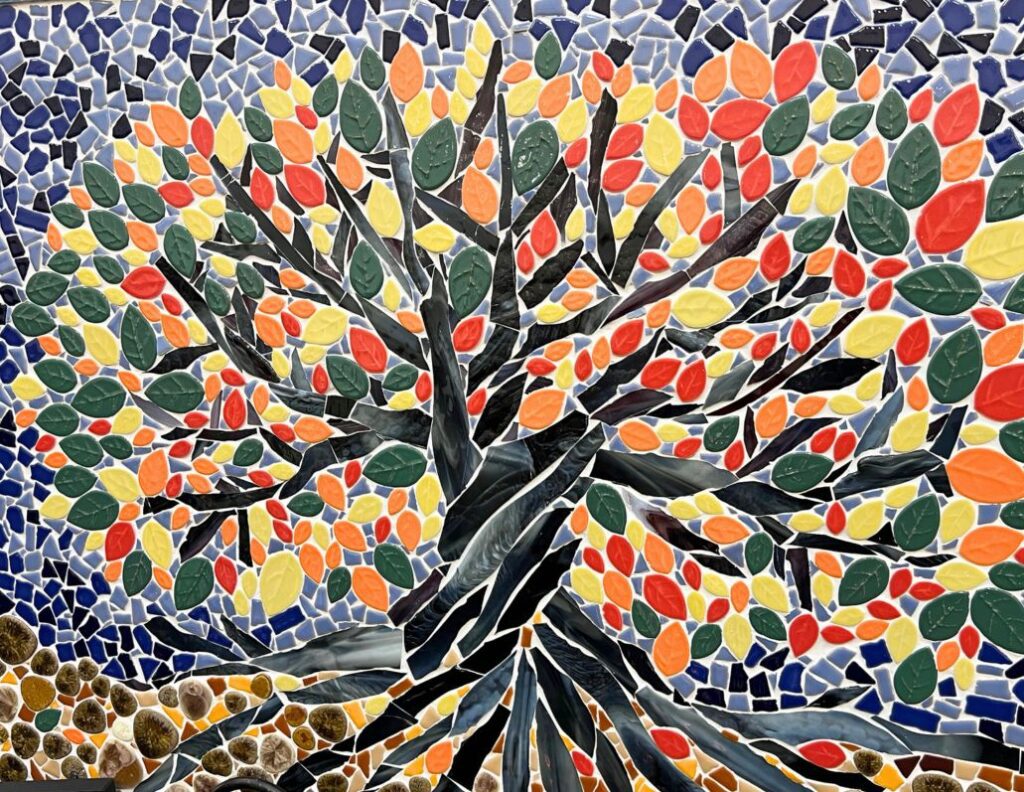
Last Sunday, amid the extreme bruhaha in the swing state of Pennsylvania related to the upcoming national election I attended the Commemoration Ceremony of the sixth anniversary of the Tree of Life Synagogue massacre in Pittsburgh. Eleven people lost their lives, and four others were injured in the worst attack on Jews in the history of the United States. This occurred in an area of the city locals always referred to as “Mr. Rogers’ Neighborhood.” Maggie Feinstein, the director of the 10.27 Healing Partnership, the organization that has provided resources and support to the Jewish and non-Jewish community throughout the past six years began the commemoration. She acknowledged the impact of that event. “We’re here today to remember six years ago when our Pittsburgh community and Jewish people around the world were forever changed by an act of violence, changed because of the loss and suffering, but also changed because of the incredible outpouring of kindness and solidarity.” A part of the legacy of the attack is the realization that “we are stronger together.” Since I have attended most all of the these yearly commemorations and ceremonies I would add that today they prove the truth in the slogan born of the event, “Love is stronger than hate.”
I watch family members and survivors of the violence approach the platformed stage, assist one another in navigating the steps and in lighting the candles, as the names of their loved ones are called. They offer hugs and appreciation for one another and to the professional helpers that Mr. Rogers always told the children to look for. I look around the large, packed room that holds maybe 100 people, some seated, many more standing on both sides of the room. I take in the energy of the supportive respectful silence. My mind travels back to images of people I have been meeting and talking with as I’ve been canvassing for the election in many outlying neighborhoods in the region. These people here look like they could be related to the potential voters I have met but the fear of one’s neighbors and the anxiety and uncertainty of the future I found outside this room are thankfully absent from here.
Noah Schoen, the co-creator of the Meanings of October 27th Oral History Project summarized what he learned from the stories of 100 Jewish and non- Jewish members of the Pittsburgh community. With some time to reflect, they were invited to tell their own stories about the attack and what it now meant to them. “I learned two things,” Schoen said. “We get to choose the stories we tell about the attack. We get to choose how and what we remember.
As he speaks, I see an image I choose to always remember from that time. A few days after 10/27/2018 my husband and I called a Jewish couple who are close friends and asked if we could come with them to the next Friday night service in their synagogue. It’s dusk as we arrive with our friends and park the car. Moving towards the entrance to the synagogue our path is lit by dozens of people ahead of us holding lighted candles. Reaching the sidewalk to the entrance we join other congregants and process through two rows of Christian and non-Jewish neighbors, each holding a candle and standing in a silent solidarity of support. I look at this scene through damp eyes.
The word “oscillation” gets my attention as Schoen suggests the back and forth between horror and appreciation that’s needed to tell a story that builds resilience and helps people to tell their stories in what I call, “transforming ways.” Such stories as these are too big for one or even two bodies to hold. They must be told and held in community. Oral History is that kind of storytelling. According to Schoen, “The truth is multi-vocal art; a collection of individual narratives that paints a more nuanced picture of the community’s experience than any one story. Let’s keep telling stories about that day, about the people who we lost and the people who touched us, about what we can’t seem to get over and about what we never expected to learn.”
Healing from atrocities takes a lifetime, but in community, what is broken mends, not by putting it behind us but by remembering and keeping its transforming meanings and community members close.

